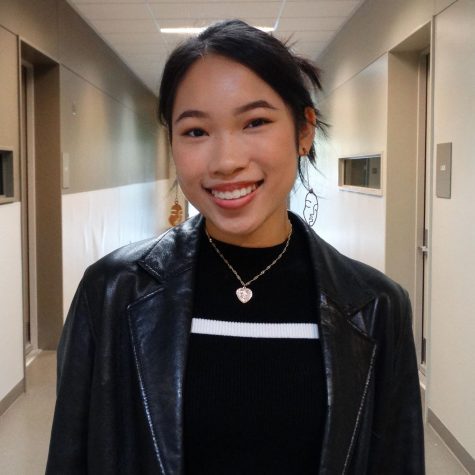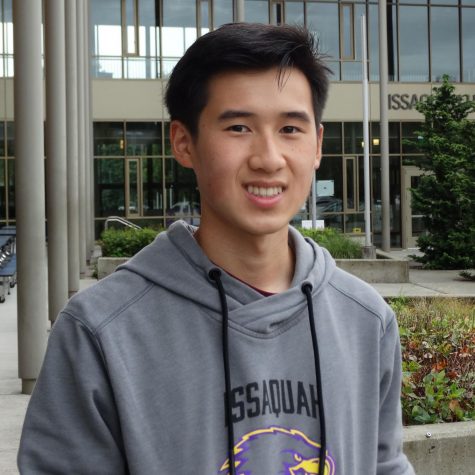Christmas, Yom Kippur, & Cambodian New Year: Religious Equity at IHS
December 15, 2021
Many students rejoice at the prospect of getting two weeks off of school during the winter, encompassing Christmas and New Years holidays. In the spring, students also get the week off before Easter. Over 60% of Americans identify with a Christian denomination, and with Christmas and Easter being two of the most important holidays in Christian faith, it is no surprise that our school break schedules accommodate that. However, non-Christian students struggle to find their place in a Christian-centered society. With the topic of school breaks and the Christmas holiday at the forefront of our minds, looking towards religiously diverse students and their celebrations opens a greater conversation about religious equity yearlong at IHS.
On the scheduling of winter break, freshman Ishika Kumar, whose family is Hindu, says, “For a lot of other people the dates of winter break might matter, but for me, I love Christmas too.” Senior Yoav Ackerman, who is Jewish, adds, “Luckily the biggest holiday is Hanukkah, which you can take part in at night so the timing of break is not that big of a deal to me. I personally never felt, unless enforced in school, that it was dubbed as ‘Christmas break.’”
However, other students disagree. Sophomore Kayleen Prestoza-My, who is Buddhist, says, “It is very centered around Christianity and Eurocentrism, so a lot of times people who are not Christian or are from a different culture feel left out. It is kind of unfair because it doesn’t consider the other religions.” Junior Rama Bah, who celebrates Muslim holidays, similarly echoes, “I don’t see the fairness in how some people have to miss school for their holiday while the school system excuses others for Christmas when not all people celebrate Christmas.”
Conflicts arise when religious holidays do not match up with official school-wide breaks. For Yom Kippur, considered the most holy day of the year for Jewish faith and known as the Day of Atonement, Ackerman made the decision during his bar mitzvah never to eat or drink on that holy day. He says, “Since I’m not allowed to eat or drink, I’m supposed to stay home and reflect on who I am and how I can be better. So, most times I don’t go to school. However, the problem occurs when I have an assessment, or the fear of missing something that’s important.” Fasting during school is also difficult for Bah: “During Ramadan I fast during the day at school and have dance practice. I don’t have enough energy, and I’m still expected to participate the same as everyone else.” Bah recommends the school provide separate spaces for students who are fasting so they do not need to sit next to others in the lunchroom. Ackerman says, “It should be respected that some students can’t participate in school because they are partaking in religious activities.”
For Prestoza-My, Cambodian New Year is in April and does not fall during a school break, posing an issue. Celebrations for Cambodian New Year include praying at the temple, offering food to ancestors, and spending time with family. They say, “I should miss school, but I can’t because there’s too much going on in class at that time.” On the contrasting side, Diwali, a major Hindu holiday more popularly known as the Festival of Lights, can be celebrated after school according to Kumar so having the school day off is not as important. She says, “When we get home there’s usually a small prayer and then a big dinner. It’s really fun!”
Holiday and school scheduling crossovers are not the only issues that face religious students at school. Bah says, “Most people don’t know that I celebrate Muslim holidays. When I do tell them, the stereotypes of terrorists are brought up or the question ‘Why don’t you wear a hijab or cover yourself?’” Problematic and ignorant comments like that are not new to Ackerman either. He says, “It’s the little things like when someone asks, ‘Do you speak Jewish?’ or ‘What is that Jew day?’ that raises some alarms on how well our education system is teaching us about other holidays.” Besides student-to-student interaction, some students may also find difficulty reaching out to their teachers. Prestoza-My notes that some other religious students feel nervous to ask their teachers for extensions or other accommodations for holidays. Bah says, “I have to email teachers, but they get disappointed when I have to miss school.”
Prestoza-My, Kumar, Bah, and Ackerman all agree that education on different religions is key. Ackerman says, “The more people know the more likely they will think before making a decision that could potentially involve hate.” He is also the co-president of IHS One World, a club dedicated to spreading knowledge about Jewish history and fighting antisemitism. Prestoza-My suggests incorporating religious diversity into the school community, such as educational iVision segments featuring student voice. Kumar proposes we learn more in school about all the various holidays and celebrations during this winter season.
Issaquah High has taken admirable steps to religious inclusivity this year by adopting a diverse calendar curated by the ISD Student Equity Council. The school-wide event calendar on the IHS website features a variety of religious days from the Shinto New Year’s celebration Gantan-Sai, to Chinese New Year, to the Muslim holiday Eid al-Fitr. No one is calling for an overthrow of our school break system, but rather religious students ask to be acknowledged and understood when they have religious commitments. Bah and Ackerman suggest giving days off to religious students for major religious holidays and further recognizing them during school.
Additionally, school leaders are careful to remain conscious during pre-winter break celebrations. Regarding “Winterfest,” Bah says, “Since I’m in ASB I’ve made sure to stick to winter-themed more than Christmas-themed because not everyone celebrates Christmas.”
As quoted by the Seattle Times, Superintendent of Washington Public Instruction Chris Reykdal wrote in a May bulletin to school districts, “Schools that plan around major religious holidays convey to all students that they are a meaningful part of their school communities and their religious traditions matter.” As diverse populations grow, other Washington schools are taking steps to ensure equity is in place. According to the Seattle Times, Franklin High School in Seattle rescheduled its prom and senior breakfast to avoid disrupting Ramadan. The Mercer Island School District changed the date of their first day of kindergarten so Jewish students would not have to start on Rosh Hashanah. And Kent School District officials negotiated with their graduation venue in order to allow Sikh families, who were barred due to religious articles they carried that resembled knives. The progress IHS has taken to include our religiously diverse students is noticeable, but there is always more to be done to make our school as safe and inclusive as possible.



